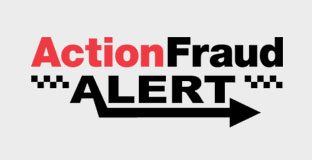Covid-19 Scams Alert
Covid-19 Scams Alert
The coronavirus crisis has caused a big increase in Covid-19 Scams.
Many of us are already aware of the dangers of scam.

Action Fraud
But you may know somebody who is perhaps less alert to the dangers.
We used to be able to recognise scam emails because of their poor English.
But the scammers are moving with the times.
Recently there have been reports of fraudsters purporting to be from research groups similar to the Centre for Disease Control and Prevention (CDC) or World Health Organisation (WHO).
Scammers often try to trick you to visit a website which is a very convincing imitation of a bank or utility company’s website.
Or they send you an email or text that looks as though it came from a well known business or a government department such as the DVLA or HMRC.
How do scams arrive?
They may come by email or text message, by post or telephone, or a pop-up window while you’re browsing the internet, or a cold caller at the door.
How to spot a scam
It might be an unexpected message, an offer that seems too good to be true, or the promise of a refund.
Or a warning that a payment has failed, like this DVLA scam.
It could also be a request to confirm your logon credentials, or an offer to fix a computer problem that you didn’t know you had.
How to handle suspect emails or texts
Precautions include:
- Don’t send off any money.
- Never reply.
- Don’t download or open any attachments.
- Never click on links: type the address of your bank or other supplier into the address field of your browser.
- Check phone numbers against published details for an organisation.
- Don’t allow anyone remote access to your computer, unless you initiated the support call to a number you know to be trustworthy.
Reputable companies such as Microsoft do not make unsolicited phone calls to help you fix your computer!
Scam warnings
recent warnings include fake:
- TV Licensing refund emails,
- Netflix emails
- fake HMRC or DVLA emails
- British Gas refund emails,
- Amazon emails,
- texts about your mobile phone bill,
- ‘user has shared file with you’ Dropbox emails,
- Santander and NatWest text messages
For more information:
- Scams: www.hants.gov.uk/business/tradingstandards/consumeradvice/scams
- Latest fraud alerts: www.actionfraudalert.co.uk/pages/2996/1/Home.html
- Royal Mail Scam Mail Helpline: 0800 0113 466
- What is scam mail and how you can report it to us – Royal Mail
- Advice about staying secure online: www.cyberaware.gov.uk
- SafeFromScams.co.uk – advice about staying safe from scams
- Who called me? https://who-called.co.uk/ – one of several sites which help identify phone numbers used by scammers.
This Covid-19 Scams Alert is an updated version of a scam warning from October 2018

